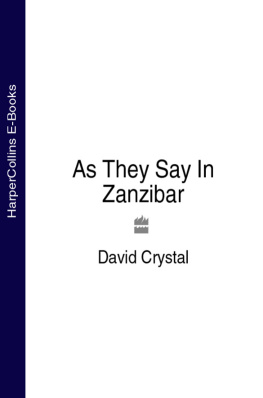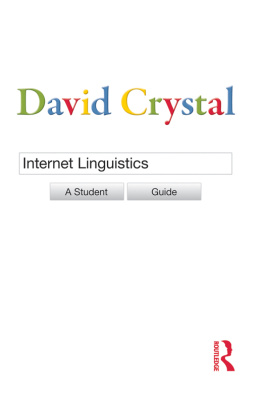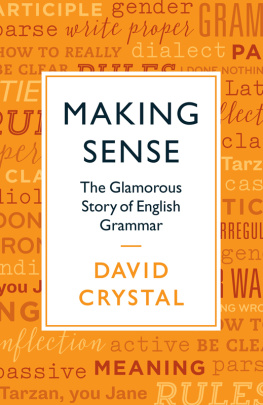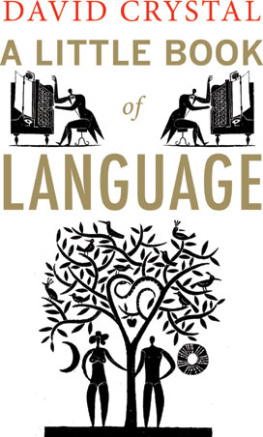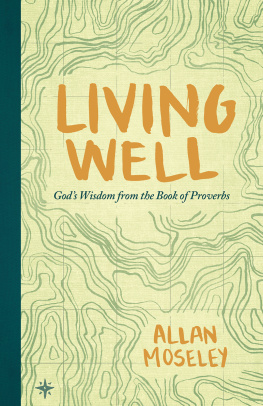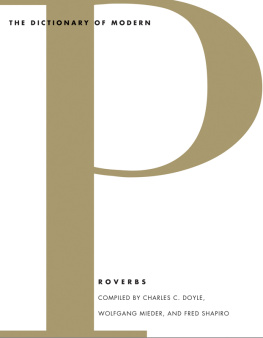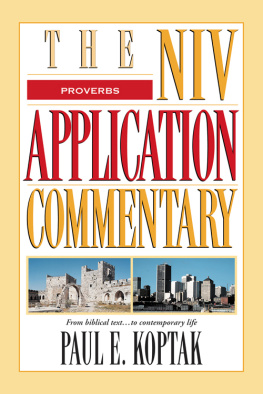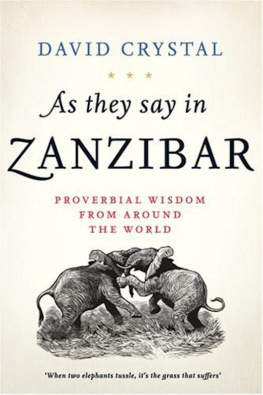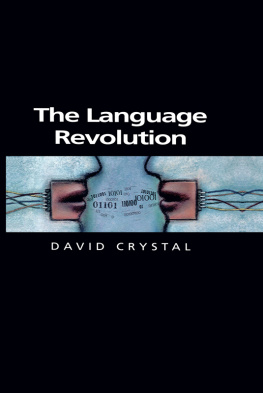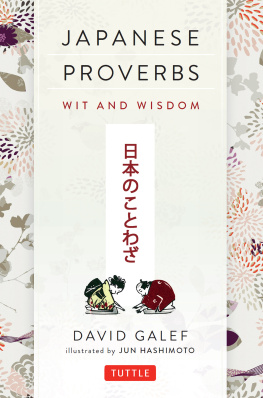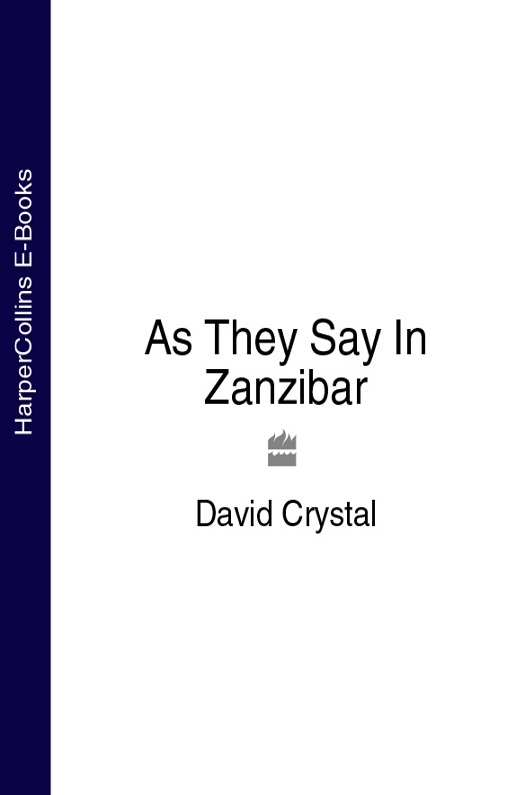
When two elephants tussle, its the grass that suffers
ZANZIBAR
CONTENTS
When the occasion comes, the proverb comes
GHANA
If there is falsity in a proverb, then milk can be sour
INDIA
IS THERE still a place for proverbs in the language of the twenty-first century? When I began to compile this book, I asked several people what they thought of proverbs, and encountered a surprising number of negative reactions. One widely held view maintains that proverbs are clichd expressions, used by those who have not bothered to think clearly. Another sees them as out of date, a reflection of a bygone age. One person an Internet geek told me that he wouldnt be seen dead using one, citing Too many cooks spoil the broth as a case in point.
There is a curious double-think operating. I later heard that same geek joking with some colleagues about the poor military intelligence that had led a certain government to make some bad decisions. Garbage in, garbage out, said the geek. The phrase originated in his IT world: if invalid data (garbage) is entered into a system, the output will also be invalid. During the 1990s, the expression came to be applied to an increasingly varied range of situations. Within a decade, it had taken on proverbial status. My anti-proverbial geek was using a proverb without realizing it.
Within a few days of that first enquiry, I heard several people dropping proverbs, or fragments of proverbs, into their conversations. Needs must, said one. Ask a silly question, said another. People in glass houses, said a third. None of them bothered to complete the well-known proverbs. They were taken for granted.
People may not quote proverbs in full as much as they used to, or treat them with the high respect of an earlier age, but they certainly allude to them. Anyone looking out for proverbs in everyday situations would quickly be able to add to the following brief selection:
- A university department that was being axed advertised its farewell party under the banner headline: Come and Hear the Fat Lady Sing.
- A TV comedian made a risqu joke based on A bird in the hand is worth two in the bush.
- A US motel trying to attract custom to the claimed comfort of its facilities had a sign outside: The early bird only gets the worm.
- A TV comedy programme called itself Birds of a Feather.
Proverbs continue to fascinate people. Here is a test anyone can do. Choose one of the less familiar proverbs from this book, drop it into a conversation, and see what happens. My favourite is the Irish proverb Never bolt your door with a boiled carrot. There is invariably an interesting discussion about the proverbs origins and use. And one proverb then reminds someone of another. It is a bit like punning: when one person makes a pun, others try to do better. Puns are batted back and forth. Some linguists have called this .
There is something about the proverbs associated with other cultures that allows them to evade the kind of criticism we level at our own native expressions. Whatever else we might say about the following, we would not for one moment call them clichs.
A coconut shell full of water is a sea to an ant (ZANZIBAR)
Dont call the alligator a big-mouth till you have crossed the river (BELIZE)
An untouched drum does not speak (LIBERIA)
Do not try to borrow combs from shaven monks (CHINA)
Such proverbs do more than express a general truth or universal belief. Each in its own way adds a tiny bit more to our understanding of the worlds linguistic and cultural diversity, and thus helps us grasp more fully what it means to be human.
It is a commonplace of comparative linguistics that every language expresses a unique vision of the world. This is not to say that each language is so different from others that its speakers can never communicate outside their own people. The existence of balanced bilinguals people who have learned two languages from childhood with equal fluency and the everyday phenomenon of translating and interpreting proves otherwise. Rather, it is to point out that languages are not identical in the way in which they talk about the world. There is a limit to the amount of exact translation equivalence that can be achieved, and people have to be satisfied with an approximation. And it is in this area of approximate equivalence that fascinating cultural differences can be found.
Commentators over the years have drawn attention to the importance of a comparative linguistic perspective on life. Here is Ezra Pound, in The ABC of Reading (1960):
The sum of human wisdom is not contained in any one language, and no single language is capable of expressing all forms and degrees of human comprehension.
And here is George Steiner, in a 1967 essay (F R Leavis):
Is it not the duty of the critic to avail himself, in some imperfect measure at least, of another language if only to experience the defining contours of his own?
The ideal, of course, is to learn enough of another language to be able to get a sense of the differences directly to feel the contours, without having to rely on a translating intermediary. The second-best approach is to read, in translation, as much as possible of the culturally distinctive literature of other languages, such as its poems, stories, myths, legends and proverbs.
A collection of cross-linguistic proverbs is of special interest because it conveys two opposed but equally interesting messages. On the one hand, it draws attention to the differences of expression and perception which characterize the worlds communities. On the other hand, it shows that, to a very great extent, these communities are the same. People recognize, admire and worry over similar things. Notions such as More haste, less speed can be found in dozens of cultures. And in such examples as the following, the nuance may vary, but the spirit behind the proverb remains the same:
A guest and a fish after three days are poison (FRANCE)
Seven days is the length of a guests life (MYANMAR)
However, this common human perspective is a complication when it comes to compiling a book such as this one, which aims to be illustrative of proverbial diversity and not comprehensive. It is not possible, in a short selection, to include a proverb as it appears in every country; nor if reader interest is to be preserved is it desirable. To illustrate the point, consider these variations on the guest theme just a few taken from Selwyn Gurney Champions huge collection of translated cultural proverbs ():
A fish and a guest go bad on the third day and must be thrown out (BASQUE)
Fish and guests smell at three days old (DANISH)
A guest, like a fish, stinks the third day (DUTCH)
A fish and a guest after three days are poison (ENGLISH)
Guests and fish will get old on the third day (ESTONIAN)
The first day a guest, the second a guest, the third day a calamity (HINDI)
Even a welcome guest becomes a bore on the third day (JAPANESE)
We need only one example to appreciate the point, but that means grasping the nettle and selecting one country to represent all. I have endeavoured to introduce as wide a range .
All anthologies are made with particular audiences in mind, and selections inevitably change over time. Until as recently as thirty years ago, it would have been normal to find in any proverb collection a predominantly masculine bias, reflecting traditional male-dominated society. Many items, both those native to English and those in translation, would have begun with He who or The man who . Times have moved on. I have replaced these with a generic usage, unless there is a genuine male v female contrast involved. A remarkable number of proverbs, in many countries, also reflect unpalatable notions, such as the desirability of beating ones wife to ensure obedience. And most countries have proverbs which are extremely rude about the people, politics, or religion of their neighbours, especially those with whom they have been at war. I have not included these either, wishing to provide a selection which reinforces the ideals of a more tolerant and inclusive age. The dismissive attitudes are available in the older literature cited in , should anyone wish to read them.

